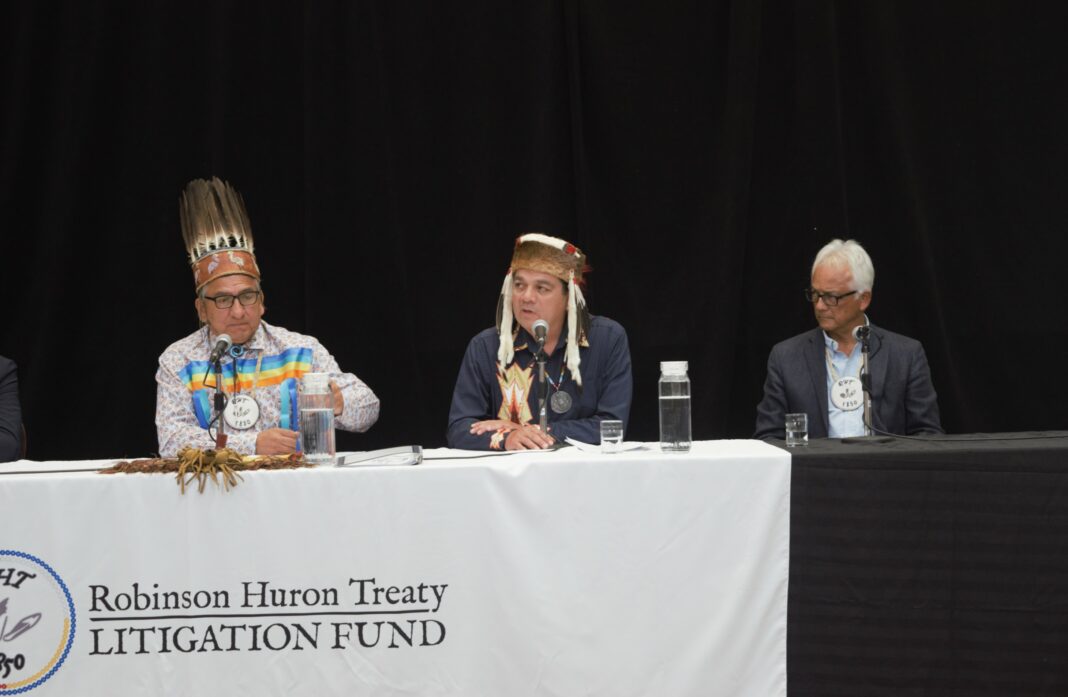SUDBURY—Canada and Ontario have reached a proposed $10-billion settlement with the 21 Robinson-Huron Treaty (RHT) First Nations (including the First Nation communities of Manitoulin Island), moving the decade-long legal fight closer to its resolution.
The RHT lawsuit against Canada and Ontario is about breach of treaty. The original document, signed in 1850, set out agreements about how Indigenous peoples and settlers would share the territory and the wealth it would produce.
Originally, eligible First Nation citizens would receive an annual payment of $1.70 from the colonial government as part of the agreement, with payments promised to increase as resource extraction expanded in the territory.
The annuity grew to $4 per year in 1875, but it’s been frozen at that amount ever since. Court rulings have sided with the First Nations that the Crown has failed to uphold its duties under the RHT.
The RHT First Nations filed the lawsuit in 2014, though advocates have been working on this issue for generations.
This proposed settlement, involving contributions of $5-billion each from Canada and Ontario, is only meant to cover the missing compensation that should have been paid out over the last 170 years.
“The compensation from this settlement will ensure a stronger and brighter future for our people and our nations,” said Batchewana First Nation Gimaa (Chief) Dean Sayers. “The [RHT] provides a framework for peaceful coexistence and sharing of resources. We see this settlement as an opportunity to show the commitment of both Canada and Ontario to respect and implement our rights affirmed in the treaty.”
Details are not yet available regarding how the settlement will be distributed to communities and eligible members. The RHT leadership is undertaking extensive community consultations to gather feedback on how that framework may take shape.
The consultation process, as well as determining who is eligible for a settlement, will happen through the RHT’s Office of Mizhinawe under the leadership of Harry S. LaForme, a judge from Mississaugas of the New Credit First Nation.
In the first stage of the RHT legal process, the court ruled that the annuity was meant for the 21 First Nations as a whole. This means the majority of the funding will be used for projects that address the broader needs of communities, but some of the settlement will also flow directly to individuals.
The consultations will take place over the coming months. They will allow representatives to share information and answer questions from members.
RHT Litigation Fund spokesperson Duke Peltier, of Wiikwemkoong, said it was important for people to tell the group about their priorities, so their views could be represented in building the final framework.
“Let us know how to talk to you. If it means coming to your kitchen table, into your homes, into your family gatherings, then let us know. Let the team know. We want to be able to communicate in safe environments, where you feel comfortable in sharing your views,” Mr. Peltier said.
Please see this week’s edition of The Expositor for more coverage on this announcement.





